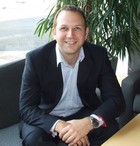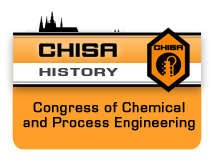PLENARY LECTURES
Wei Ge
Institute of Process Engineering, Chinese Academy of Sciences, Beijing, CN
Plenary Lecture:
Multi-scale Discrete Supercomputing - a game changer for process simulation?
Abstract
Discrete elements (particles, grains, powders, droplet or bubbles, etc.) are encountered in process engineering as often as continuua, not to mention that continuua themselves are discrete at microscale. It is estimated that bulk materials in the form of powders and grains hold the second largest quantity in process engineering, only next to water. However, their properties and interactions are much more complex and less understood theoretically than continua, and experiments can hardly reveal their dynamical details. Direct simulation of the interactions and movement of the individual elements, therefore, becomes important for process development and engineering, such as for material design and reactor scale-up. However, industrial systems typically involve billions to trillions of elements, so the computational costs will be virtually unaffordable.
To address such challenges, we conducted a systematic co-design of the physical model, numerical software and computer hardware, which can greatly accelerate discrete simulation while reduces its cost. We notice that discrete elements share some very favorable features for scalable parallel computing, such as locality and additivity, which ensures elements at different locations and different interactions on the same element can be processed simultaneously, and more importantly, a coarse-grained element may represent a collection of real elements to reduce the computational cost greatly. Taking advantages of these features, we developed a general algorithmic platform for different discrete systems without trading off its accuracy and efficiency. Furthermore, we introduced many-core processors to the traditional supercomputer architecture which can accelerate the execution of the software by several orders .
The software and hardware described above can be applied in multi-scale simulation of discrete systems on different levels: Molecular dynamics simulation of condensed matter can now achieve petaflops sustainable performance, linking angstrom and millimeter scales directly; direct numerical simulation of multiphase fluid flow with micron-scale particle can be carried at meter-scale; and at the reactor scale, with coarse-grained models, discrete simulation can already serve as a practical alternative of traditional continuum-based simulations as employed in mainstream commercial softwares.
We believe, with further optimization of the model and algorithm, the speed and scale of discrete simulation can be elevated again by several orders in near future, which may finally lead to realtime simulation of industrial systems without scarifying its resolution and accuracy. That means virtual reality of industrial processes is turning from fictions to practice, which will be an exciting revolution to the technological development and engineering of process industries.

Wei Ge - curriculum
Professor Ge got his Ph. D. degree from Harbin Institute of Technology in 1998 and has been professor of chemical engineering at Institute of Process Engineering (IPE), Chinese Academy of Sciences (CAS) since 2006. He is mainly engaged in multi-scale simulation of particle-fluid two-phase systems. He further developed the Energy-Minimization Multi-Scale (EMMS) model proposed by Li and Kwauk (1987) for gas-solid flow and explained the controversial "choking" phenomenon in fluidization as a bi-stable state. He also proposed the so-called "pseudo-particle" modeling which enables simulation of macro-scale flow phenomena from microscopic physics through large-scale parallel computation. With this approach he studied statistical properties of gas-solid flow and verified the stability condition employed in the EMMS model. As project leader, he developed a multi-scale supercomputing system to bridge simulation of molecular details to reactor performance. He is author of over 130 journal papers and 5 monographs. His work was positively cited by Annual Review of Fluid Mechanics, Physics of Fluids, Chemical Engineering Science and Powder Technology etc. He is currently associate editor of Chemical Engineering Science and editorial board member of Particuology. He won the Excellent Doctor Dissertation Award of Harbin Institute of Technology in 2001, the Outstanding Youth in Basic Science Award of Zhou Guangzhao Foundation in 2008, the P&G Outstanding Youth in Particuology of Chinese Society of Particuology in 2011 and the National Science Fund for Distinguished Young Scholars in 2012.
Henrik Lund
Aalborg University, DK
PRES Plenary Lecture:
Renewable Energy Systems - A Smart Energy Systems Approach to the Choice and Modelling of 100% Renewable Solutions
Abstract
This lecture presents the learning of a series of studies that analyze the problems and perspectives of converting the present energy system into a 100 percent renewable energy system using a smart energy approach. As opposed to, for instance, the smart grid concept, which takes a sole focus on the electricity sector, smart energy systems include the entire energy system in its approach to identifying suitable energy infrastructure designs and operation strategies. The typical smart grid sole focus on the electricity sector often leads to the definition of transmission lines, flexible electricity demands and electricity storage as the primary means to deal with the integration of fluctuating renewable sources. However, the nature of wind power and similar sources has the consequence that these measures are neither very effective nor cost-efficient. The most effective and least-cost solutions are to be found when the electricity sector is combined with the heating sector and/or the transportation sector. Moreover, the combination of electricity and gas infrastructures may play an important role in the design of future renewable energy systems. This presentation illustrates why electricity smart grids should be seen as part of overall smart energy systems and emphasizes the inclusion of flexible CHP production in the electricity balancing and grid stabilization. Furthermore, it highlights some recent developments in the Danish electricity market operation.

Henrik Lund - curriculum
Henrik Lund, M.Sc.Eng., Ph.D., Dr.Techn. Professor in Energy Planning at Aalborg University, Denmark, www.Henriklund.eu
Editor-in-Chief of Elsevier International Journal ENERGY
http://www.elsevier.com/wps/find/journaldescription.cws_home/483/description#description
Author of the book: Renewable Energy Systems: www.elsevierdirect.com
Architect behind the Advanced Energy Systems Analysis Model EnergyPLAN: www.EnergyPLAN.eu
Former head of department and head of several European and Danish research projects including the 4DH (Strategic Research Centre for 4th Generation District Heating Technologies and Systems) financed by the Danish Council for Strategic Research involving 32 university and industrial partners in Denmark, Sweden, Croatia and China. 2012-2017. www.4DH.dk, the Strategic Research Project CEESA (Coherent Energy and Environmental System Analysis, 2007-2011) www.CEESA.dk and the EU 6th framework program DESIRE (Dissemination Strategy on Electricity Balancing for Large Scale Integration of Renewable Energy). 2005-2007. www.project-desire.org
Jon-Paul Sherlock
UK/US Product Development, AstraZeneca, UK, Director
Plenary Lecture:
Opportunities and challenges for the pharmaceutical industry - A chemical engineer's perspective
Abstract
The Pharmaceutical Industry is changing. That is not straightforward for a highly regulated, previously conservative industry. However, over the last decade scientific, technological and socio-economic drivers have created an environment for increased innovation in product design and manufacturing process development, approach and methodology and how we interact and collaborate. It has been described as "the best of times, the worst of times"1 and the coming years will provide both challenges and the opportunities for the sector. This plenary will provide an overview of the industry highlighting the role of chemical engineering science in driving further innovation.
Better understanding of biology and disease mechanism together with the need demonstrate improved safety, efficacy and differentiation is resulting in an increased number of smaller volume products progressing towards commercialisation. Increasingly, late phase development portfolios are composed of a more proportionate mix of small molecules, large molecules and new modalities such as Antibody Drug Conjugates (ADC). Together these factors result in different technical challenges, both through development and commercial supply, where chemical engineering is taking a more significant role.
Examples will be shared to demonstrate how engineering principles with a scientific focus are yielding progress in the following areas;
-
Increased simulation and prediction to reduce risk and minimise attrition.
-
Introduction of advanced supply chain and manufacturing technologies.
-
Engineering in bio-pharma.
-
Drug delivery innovations.
-
Advanced material design and understanding.
"IChemE has reviewed the major challenges and opportunities confronting chemical engineers working in the pharmaceutical industry. These are summarised in the Chemical Engineering Matters report, which was fully updated in July 2014. The report offers a useful overview of the current landscape and provides direction and inspiration for the international chemical engineering community. Download a copy at www.icheme.org/cem".

Jon-Paul Sherlock - curriculum
Dr. Jon-Paul Sherlock is Director for UK/US Product Development at the British-Swedish multinational pharmaceutical and biologics company, AstraZeneca. He is a Chartered Engineer and Fellow of the Institution of Chemical Engineers (IChemE) with extensive technical line and project management experience gained in the pharmaceutical industry. After gaining his MEng and PhD at the University of Manchester, UK he started his career at Syngenta before joining Astra Zeneca in 2001. He has progressed through that organisation in a number of roles including Head of Process Engineering and Director of Physical Sciences, a role in which he designed and established a new department, bringing together different skill groups to better connect drug substance, drug product and product performance. Dr Sherlock joined the governing Council of IChemE in 2011 and became its technical vice president in 2014.
Phillip R. Westmoreland
North Carolina State University, 2013 President of AIChE, US
Plenary Lecture
Making Bio-oils: A Microcosm of the Opportunities and Challenges for a Golden Age of ChE
Abstract
Chemical engineering expertise is essential for a wide variety of areas that are shaping the world's future, making this truly a new Golden Age of ChE. At the same time, a hallmark of our scientific and technological advances is that they must address larger contexts, and we must aid both industry and public decision-making. Consider these trends:
• The new abundance of hydrocarbon resources
• Biology's turning into a molecular science
• Computing's evolution into a cyberinfrastructure
• Manufacturing's shift to emphasize processes and properties
• Society's need for the breadth and problem-solving approaches of chemical engineering.
As an example, I will describe our work on sustainably creating and using liquid transportation fuels from wood. At the molecular scale, the challenge is discovering true, elementary reactions that convert the complex biomass structure. We are using computational quantum chemistry, reaction theory, Reactive Molecular Dynamics, and new experimental methods to discover these reactions, and we collaborate to guide these insights into process development.
Looking more broadly, for the next hundred years bio-oil products will face difficult competition with abundant gas and oil from hydrofracturing. That sets up conflicts between our intertwined societal aspirations of having both energy and environmental quality. Our knowledge is crucial for providing the technologies and the information to fill such needs wisely and to achieve our world's highest aspirations.

Phillip R. Westmoreland - curriculum
Professor, Executive Director, NCSU Institute for Computational Science and Engineering
Phil Westmoreland's degrees are in chemical engineering from N.C. State (BS '73), LSU (MS '74), and MIT (PhD '86). He was a Research Engineer in the coal-conversion program at Oak Ridge National Laboratory from 1974-79, was on the faculty of the Chemical Engineering Department at the University of Massachusetts Amherst from 1986-2009, and served as a program officer at the National Science Foundation in 2006-2009.
Phil's research focuses on reaction kinetics and reaction engineering. Results are obtained from experiments, computational chemistry; on reactive-flow modeling; and on molecular-beam mass-spectrometry. The main technology driver is clean energy from fossil and biofuels, but he has also been involved with developing fire-safe polymers, hypergolic rocket fuels, and plasma processing of microelectronics. He is author or co-author of over 100 peer-reviewed publications and five books. His teaching, research, and service have been recognized in recent years by Lawrence Berkeley National Lab's David Shirley Award, AIChE's Gary Leach Award and George Lappin Award, ASEE's William Corcoran Award, the National Science Foundation Director's Award for Collaborative Integration, the UMass College of Engineering's Outstanding Senior Faculty Award, and by being named a Fellow of AIChE and an Honorary Professor of Nanjing University.






